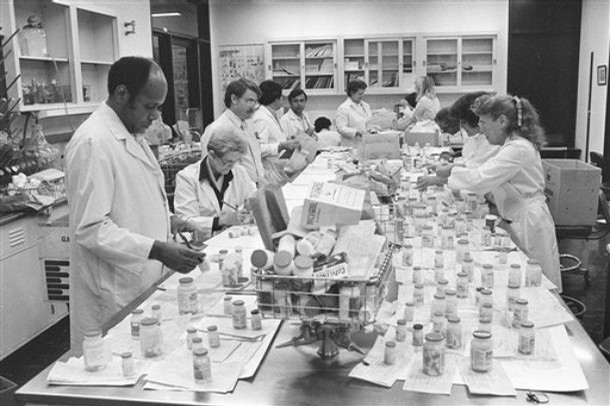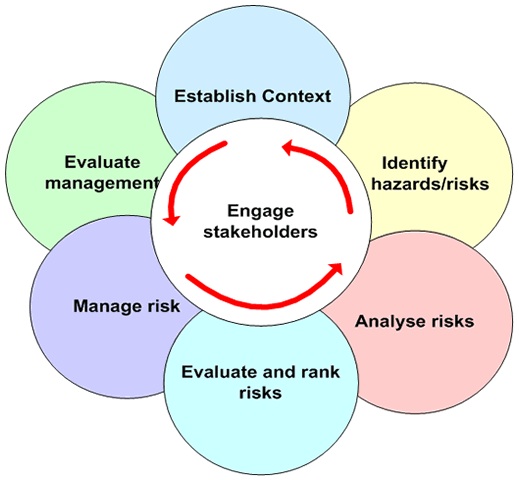In the food-related risks category, Maple Leaf-listeria, Odwalla-E. coli O157:H7 and Natural Selections-spinach have all been held up as communication role models.
 They all sucked. And a lot of people got sick and died.
They all sucked. And a lot of people got sick and died.
That’s because food safety and other risks require effective and accurate assessment, management and communication. Fail at any one, and you’re going down.
The New York Times reports this morning that the Harvard Business School teaches future executives the gold standard in brand crisis management. The model dictates that a company should communicate clearly with the public about a crisis, cooperate with government officials, swiftly begin its own investigation of a problem and, if necessary, quickly institute a product recall.
The template is based on Johnson & Johnson’s conduct in 1982 (above, right), when several people died after taking tainted Tylenol pills. The company’s reaction to the crisis is widely regarded as exemplary.
I was never impressed with Harvard. Others are. I told a leading Canadian supermarket chain years ago it was really dumb to sell unpasteurized apple cider. They didn’t pull the product until two years later when their president-thingy went to Harvard and heard from an Odwalla dude it may be dumb to sell juice with unpasteurized apple cited as the base.
But last week, Johnson & Johnson appeared to abandon its own template, stunning a few business school professors. Its conduct also drew harsh criticism from federal officials.
 On Friday, McNeil Consumer Healthcare, a division of Johnson & Johnson, announced the recall of several hundred batches of popular over-the-counter medicines, including Benadryl, Motrin, Rolaids, Simply Sleep, St. Joseph Aspirin and Tylenol.
On Friday, McNeil Consumer Healthcare, a division of Johnson & Johnson, announced the recall of several hundred batches of popular over-the-counter medicines, including Benadryl, Motrin, Rolaids, Simply Sleep, St. Joseph Aspirin and Tylenol.
According to a federal inspection report, the response was anything but swift. The recall came 20 months after McNeil first began receiving consumer complaints about moldy-smelling bottles of Tylenol Arthritis Relief caplets, according to a warning letter sent by the Food and Drug Administration to the company on Friday. Since then, a few people have also reported temporary digestive problems like nausea, vomiting and stomach pain, the agency said.
The McNeil unit of Johnson & Johnson had recalled some batches of the arthritis drug at the end of 2009. But the company did not conduct a timely, comprehensive investigation, did not quickly identify the source of the problem, and did not notify authorities in a timely fashion, prolonging consumer exposure to the products, the warning letter said.
Analysts said the company’s seemingly slow response appeared out of character for one of the most trusted corporate brands in America, the maker of beloved household products like Johnson’s Baby Shampoo and Band-Aids.
And the recall, they said, had the potential to encourage consumers, who may have perceived name-brand medicines as being a higher quality worth their premium prices, to switch to less expensive drugstore brands.
Johnson and Johnson also makes No More Tears baby shampoo, and, as one of the comedy shows noted last week, it still makes babies cry.
